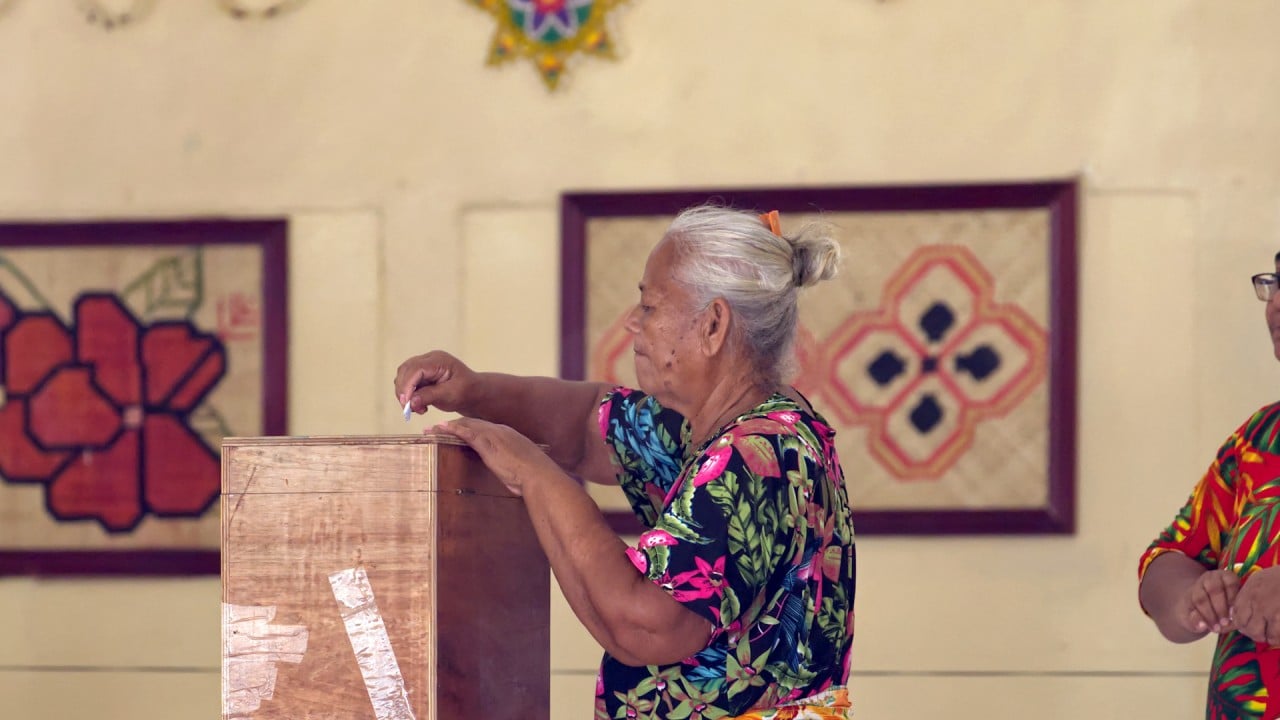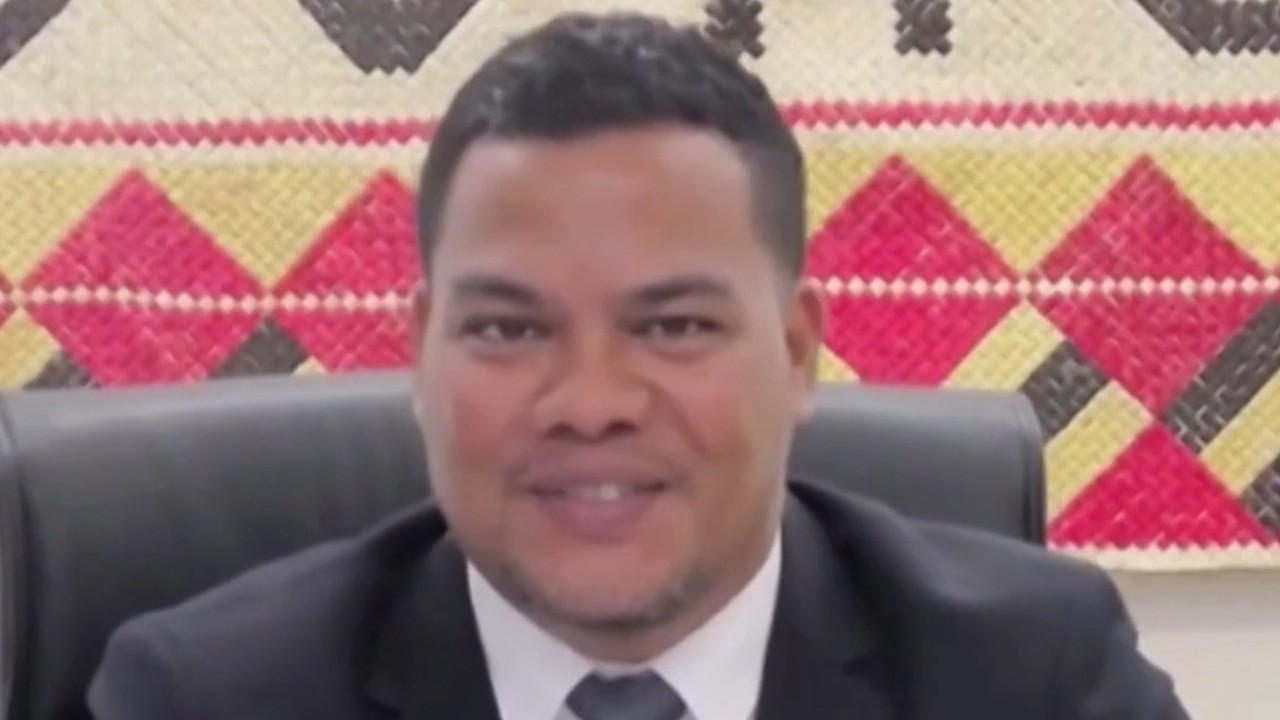
Taiwan thanks Tuvalu’s new government for retaining diplomatic ties
- The small South Pacific state says it will uphold its relationship with Taipei and look at options to make it more durable
- A leadership contender in Tuvalu’s general election last month had said the nation should consider making the switch
Tuvalu is one of Taiwan’s dozen remaining allies, and a leadership contender in last month’s general election had said the small state should consider making the switch.
But after being sworn in on Wednesday, Prime Minister Feleti Teo and his seven cabinet ministers, who won office, reaffirmed the country’s ties with Taiwan in a statement of priorities.
“The new government wishes to reaffirm its commitment to the long-term and lasting special relationship between Tuvalu and the Republic of China, Taiwan,” the government said.
“[Tuvalu] intends to reassess options that would strengthen and lift it to a more durable, lasting, and mutually beneficial relationship.”
In response, Taiwan’s foreign ministry thanked the Teo government for its continued support of Taipei and pledged to further cement ties with the Pacific Island nation.
It said the two sides had maintained vibrant ties for 45 years and cooperated in multiple areas based on universal values such as democracy, freedom, and the rule of law.
“We will seek to deepen our ties with Tuvalu in the years to come,” ministry spokesman Jeff Liu said.
The ministry issued similar statements before and after Tuvalu’s election on January 26.
“We will continue to collaborate closely with Tuvalu to create prosperity and sustainable peace in the Indo-Pacific region for the well-being of both peoples,” it said.
The election was closely watched by Taiwan, mainland China, the United States, and Australia, amid a geopolitical tussle for influence in the South Pacific.
In Beijing on Monday, mainland foreign ministry spokeswoman Mao Ning urged Tuvalu to abandon Taipei.
“We call on a handful of countries that still keep the so-called relationship with the Taiwan region to stand on the right side of history and make the right decision that truly serves their long-term interest,” she said.
A proposal by another leadership contender, Seve Paeniu, to review the country’s formal relations with Taiwan had also raised worries about a possible switch.
Paeniu, a former Tuvaluan minister of finance who secured a seat in the election, had told Reuters Tuvalu’s ties with Taiwan “need to be debated and reviewed in the new parliament”.
Beijing – which views Taiwan as part of its territory and has not renounced the use of force to bring it under its control – has intensified military operations around Taiwan and poached Taipei’s allies since Tsai Ing-wen, of the independence-leaning Democratic Progressive Party, was elected president in 2016 and refused to accept the one-China principle.
Beijing considers Lai an “obstinate separatist” whose leadership would bring war to Taiwan.
On January 15 – the day after Lai’s victory – Nauru declared it was severing ties with Taiwan, switching to Beijing which promised huge development funds for the Pacific Island nation.
The switch prompted criticism from the United States which and its allies have tried hard to contain Beijing’s growing influence within the Pacific island nations.
Most countries, including the United States – Taiwan’s informal ally and largest arms supplier – do not recognise the island as an independent state, but Washington is opposed to any forcible change in the status quo.



